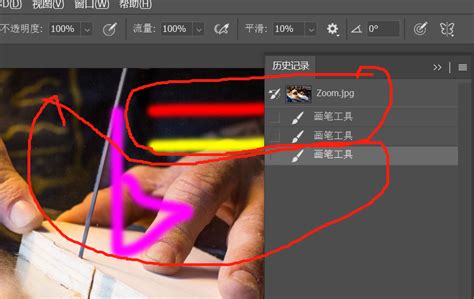
The people on the train shot him — after he started dying.
火车上有人向他开了一把“枪”——当他濒临死亡时。
They didn’t use guns. They used phones.
犯罪工具不是手枪,而是手机。

The man first collapsed and then convulsed in the aisle.
这个人先是突然摔倒,然后在过道上抽搐。
People quickly whipped out their phones and shot photos and film of him leaving this world.
人们迅速拿出手机,用图片和视频拍摄他离开世界的那一刻。
Some snapped selfies.
还有人来张自拍这个场景。
I saw a few rows before me a man I knew nothing about aside from what he looked like and that he was having a medical emergency he almost certainly wouldn’t survive, as became clearer over time.
我看着坐在我前面几排的人。除了他的外表,我对他一无所知。我只知道我面前的人在挣扎,几乎随时都可能死去。随着时间的推移,死亡离这个人越来越近。
And I saw a reflection of my father, who was actually seated across from me on the train, splayed out on the pavement in Jiangsu province’s Wuxi about two weeks before. Blood oozed through his staples and bandages when I looked at my amazingly still-living dad next to me.
这时,我父亲正坐在我对面,但大约两周前,我似乎看到他的身体在江苏无锡的人行道上。当我看着他奇迹般的父亲时,他的血液渗透到他的绷带里。
That accident is why we were on the train.
因为那次事故,我们在火车上。
I was watching an alternate version of Dad’s situation play out on the train. Sometimes, the smartphones provided a clearer view — in every sense — of what was actually happening.
我在火车上看到的场景与我父亲的意外经历非常相似。有时,从各种意义上说,智能手机为我们提供了一个更清晰的视角来看待实际发生的事情。
Feet obscured the head on the ground.
旁观者的脚遮住了躺在地上的人的头。
You could see the man dying better in the screens than in real life a few actual rows ahead.
在手机屏幕上,你可以更清楚地看到他的死亡过程,这比现实中的几排距离要近得多。

The reason I was on the train with my father was to help him carry his belongings to leave China after surviving a traffic accident that would have killed him if he hadn’t been wearing a helmet.
我和父亲在火车上是因为父亲康复后不得不离开中国。在那次事故中,如果父亲没有戴头盔,他可能会死。
It crunched his clavicle into four pieces.
事故把我父亲的锁骨折成四块。
He briefly passed out.
他短暂地昏迷了。
His friend called an ambulance.
父亲的朋友叫救护车。
Dad had surgery and about two weeks later was ready to be discharged from the Wuxi hospital and sent home to the United States.
他被送往医院接受手术,大约两周后他几乎康复了,并计划从无锡出院回到美国的家乡。
That was my mission.
这是我的任务。
Get Dad out of the hospital and take his belongings on a train from Wuxi to Beijing, from where he’d have to fly home on his own.
接父亲出院,然后带着行李从无锡坐火车到北京,然后自己从北京坐飞机回去。
A while after we’d boarded the train to Beijing, a commotion erupted ahead of us.
我们刚上车,座位前不远处爆发了一阵骚动。
An announcement came over the speakers — one I’d believed was a Hollywood fabrication — asking if there was a doctor on the train because of an emergency in Car 8.
广播里传来广播的声音,问火车上有没有医生,8号车厢发生了紧急医疗事故。
There wasn’t.
火车上没有医生。
But people who knew CPR stepped forward. They had to push through the voyeurs, jostling phones.
然而,一些懂得心肺复苏的乘客走了过去。他们不得不拨开围观者层层推开手机。
Some seated passengers asked them to clear the way.
一些坐着的乘客要求旁观者放弃道路。

I visualized a butterfly effect of Dad’s accident, and people doing what we were seeing actually happen — crowding around, phones out, cameras digitally sucking up every last drop of dignity of a dying person.
我想象着父亲事故发生后的蝴蝶效应。路人正在做我们现在看到的事情——四周拥挤。人们拿着手机,用手机里的数字相机榨干垂死的人的每一滴尊严。
Without reason.
没有理由。
I’ll confess, my journalistic instinct was to grab my phone.
我承认,出于新闻专业的本能,我下意识地想拿出手机。
But when it became apparent there was no news value in what seemed to be a natural death on a train, it proved better to respect this person’s final moments.
但这只是一个人在火车上自然死亡的过程,没有任何新闻价值,它更好地证明了对这个人最后一刻的尊重。
He didn’t seem to have a companion aboard.
他似乎没有同龄人。
But he likely has loved ones, somewhere.
但在世界的某个地方,一定有他爱的人。
They may have been his reason for being onboard.
他们可能就是他在这列火车上的原因。
Mine was.
就像我一样。
Unless our deaths are publically significant, we deserve a de facto right to pass away with dignity — even in the smartphone era.
除非我们的死亡具有公众意义,否则我们有权以尊严离开这个世界——即使我们处于智能手机的时代。
尹雪丹:殷雪丹
about the author & broadcaster

Erik Nilsson is an American journalist who has worked in China for over 10 years. His work has won various honors, including the Chinese Government Friendship Award — the highest honor the country bestows on foreigners. He has traveled to every provincial-level jurisdiction except Chongqing and Guangdong, covering such stories as the Wenchuan and Yushu earthquakes, nomadic communities’ development and civil society.
听更多英文音频可以关注↓↓↓
推荐阅读

声明:易商讯尊重创作版权。本文信息搜集、整理自互联网,若有来源标记错误或侵犯您的合法权益,请联系我们。我们将及时纠正并删除相关讯息,非常感谢!




